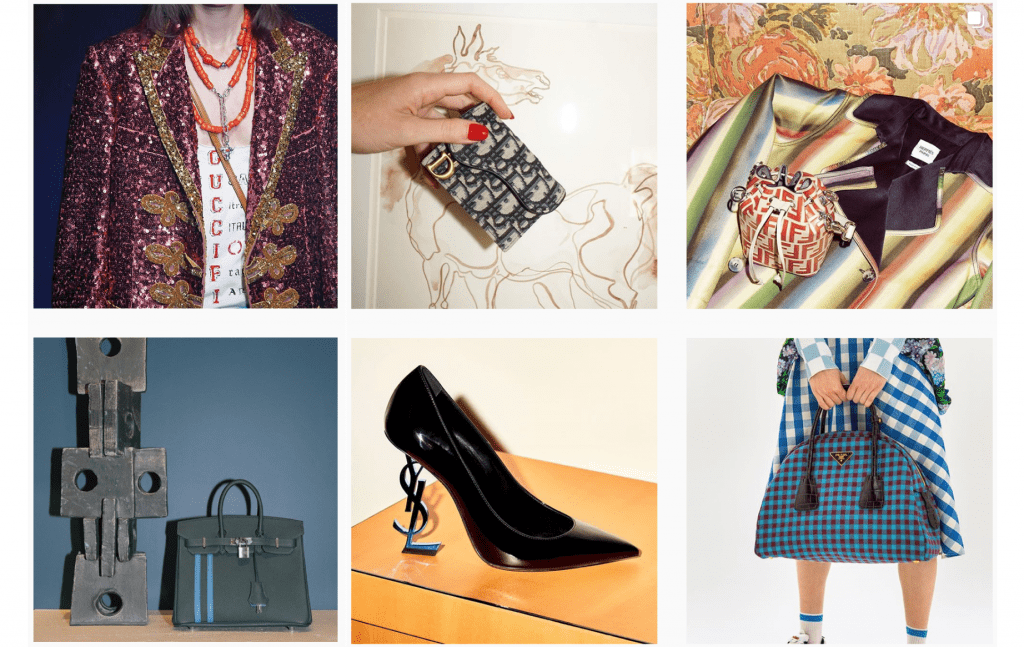The RealReal is going public. The San Francisco-based luxury consignment website – which was valued at $745 million in a funding round in July last year – filed documentation with the Securities and Exchange Commission (“SEC”) on Friday signaling plans for an initial public offering on the NASDAQ using the ticker, “REAL.”
Founded in 2011 by Julie Wainwright – the early dot-com entrepreneur, who previously held the CEO role for video retailer Reel.com and pet-supply company Pets.com – The RealReal set its sights on digitalizing the sale of pre-owned luxury goods. Since then, the popularity of The RealReal (and the pre-owned luxury market, as a whole) has skyrocketed, with the company bringing in an estimated $500 million-plus in annual revenue, although it is not yet profitable.
In a nearly 200 page S-1 form filed with the SEC late last week, The RealReal set out the “risk factors” associated with investing in its common stock, a few of which are worth highlighting. In addition to identifying the chance that it will “fail to generate a sufficient amount of new and recurring supply of pre-owned luxury goods by attracting and retaining consignors,” “not achieve or maintain profitability in the future … [given its] history of losses,” and “not compete effectively in the highly competitive resale industry,” among other risks, The RealReal points to authentication as a potential risk factor.
AUTHENTICATION: “As an online marketplace for pre-owned luxury goods, our success depends on the accuracy of our authentication process. Failure by us to identify counterfeit goods could adversely affect our reputation and expose us to liability for the sale of counterfeit goods,” the company states in the S-1 filing. While The RealReal notes that it has “invested heavily in our authentication processes and rejects any goods [it] believes to be counterfeit,” the company asserts that “we cannot be certain that [we] will identify every counterfeit item that is consigned to us.”
Why is that? For one thing, “As the sophistication of counterfeiters increases, it may be increasingly difficult to identify counterfeit products.” The risk associated with this stems largely from the potential that “we may be subject to allegations that a pre-owned luxury item we sold is not authentic despite our confirmed authentication of such item …. such controversy could negatively impact our reputation and brand and harm our business and operating results.”
LITIGATION: “We are currently, and may be in the future, party to lawsuits and other claims that are expensive and time consuming and, if resolved adversely, could have a significant impact on our business, financial condition or operating results.”
In connection with this risk factor, The RealReal notes that it relies on “the fair use doctrine when we routinely refer to third-party intellectual property, such as trademarks, on our platform,” in reference to the legal principle that states that once a trademark owner, such as Chanel, releases its goods into the market, it cannot prevent the subsequent re-sale of those goods by their purchasers (assuming, of course, that the physical condition of the goods in question had been altered or impaired).
However, The RealReal asserts that “third parties may dispute the scope of that doctrine and challenge our ability to reference their intellectual property in the course of our business.” In fact, the company states that “from time to time, we are contacted by companies controlling brands of goods consignors sell, demanding that we cease referencing those brands in connection with such sales, whether in advertising or on our website.”
“We have consistently responded by reference to the holding in Tiffany, Inc. v. eBay that factual use of a brand to describe and sell a used good is not false advertising,” The RealReal continues. “These matters have generally been resolved with no further communications, but some have resulted in litigation against us.” The key example cited by The RealReal: the lawsuit that Chanel filed, which “alleges, among other things, that we have misrepresented certain counterfeit Chanel products as authentic Chanel products, that our resale of Chanel products confuses consumers into believing that Chanel is affiliated with us and involved in authenticating consignors’ goods and that only Chanel is capable of authenticating second-hand Chanel goods.”
An “unfavorable outcome in this or similar litigation could adversely affect our ability to conduct business,” the company claims, “and could lead Chanel and other luxury brands to bring additional claims against us. If this were to occur, our business, operating results and financial condition would be materially and adversely affected.” More than that, The RealReal notes that depending on the outcome, “We may have to seek a license to continue practices found to be in violation of a third-party’s rights, which may not be available on reasonable terms or at all, and may significantly increase our operating costs and expenses.”
In terms of that lawsuit as a whole, the S-1 filing states that The RealReal “believes that it has meritorious defenses and intends to defend this lawsuit vigorously,” although it “is not able to predict or reasonably estimate the ultimate outcome or possible losses relating to this claim.”











